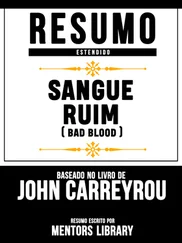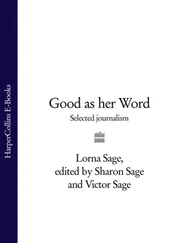Hanmer’s pretty mere, the sloping fields that surrounded us, and the hedges overgrown with hawthorn, honeysuckle and dog roses that fringed the lanes, might as well have been a cunning mirage as far as Grandma was concerned. They did nothing to alleviate the lousy desert that made up her picture of village life. She lived like a prisoner, an urban refugee self-immured behind the vicarage’s bars and shutters. None of my new school friends were allowed in the house. You could get into the vicarage garden via the side yard, or by climbing over the walls, and that was the way we did it. The whole thing was clandestine, the other children weren’t supposed to be really there at all, any more than that picturesque backdrop of lake and trees and cows. Meanwhile, insulated and apart, vicarage life went on. In the church, in bars, in books (Grandpa) or in a scented bedroom fug of dreams of home in South Wales (Grandma). That is of Tonypandy in the Rhondda, which rhymed with yonder, but with its Welsh ‘d’s softened into ‘th’, so that it seemed the essence of elsewhere.
Her Welsh accent was foreign – sing-song, insidious, unctuous, converting easily to menace. Asthma lent a breathy vehemence to her curses and when she laughed she’d fall into wheezing fits that required a sniff of smelling-salts. She had a repertoire of mysterious private catchphrases that always sent her off. If anyone asked what was the time, she’d retort ‘just struck an elephant!’ and cackle triumphantly. Then, ‘Dew, Dew,’ she’d mutter as she got her breath back – or that’s what it sounded like – meaning ‘Deary me’ or ‘Well, well’, shaking her head. That ‘ew’ sound was ubiquitous with her. She pronounced ‘you’ as ‘ew’, puckering up her small mouth as if to savour the nice or nasty taste you represented.
She had lost her teeth and could make a most ghoulish face by arranging the false set, gums and all, outside her lips, in a voracious grin. This clownish act didn’t conceal her real hunger, however. She projected want. During the days of rationing she craved sugar. Its shortage must have postponed some of the worst ravages of the diabetes that martyred her later, for once the stuff was available again she couldn’t resist it at all. She was soft and slightly powdery to the touch, as though she’d been dusted all over with icing sugar like a sponge cake. She shared her Edwardian generation’s genteel contempt for sunburn and freckles, and thanks to her nocturnal habits her skin was eerily pale. And just as she maintained that soap and water were too harsh for this delicate skin of hers, so she insisted that she couldn’t chew or digest gristly, fibrous meals with meat and vegetables, but must live on thin bread and butter with the crusts cut off if she couldn’t have tarts and buns. This, she’d repeat to me, was what little girls were made of, sugar and spice and all things nice – and I knew she was thinking of the sticky blondness of butter icing. Her ill-health had aged her into a child again in a way: a fat doll tottering on tiny swollen feet. But in her head she’d never been anything else, she still lived in the Rhondda in her mother’s house, with her sister Katie. So powerful was the aura of longing surrounding the place that it ought , by rights, to have been entirely fantastical, or at best only a memory. But no. True, her mother was long dead, but home actually still existed.
In the summer holidays we went there to visit, Grandma, my mother and me, leaving Grandpa behind. (This was called ‘letting him stew in his own juice’.) South Wales was an entirely female country in our family mythology, despite the mines and miners. A female place, an urban place and a place all indoors. Going there was like sinking into fantasy for all these reasons – and for one special reason above all, which was that home was a shop and we lived over it, and when we were there all the money horrors were magically suspended. Life was unfallen, prelapsarian, as though paying for things hadn’t yet been invented. When you wanted a chop or a teacake you just went and helped yourself without even having to cross the street. It was a self-sufficient kingdom, or almost: a general stores that stocked everything from tin trays to oranges to sausages to sides of beef and cigarettes, with a special line in Lyons cakes, and when I was small I could entirely sympathise with Grandma in her resentment at having been persuaded to swap this blissful set-up for the vicarage and the dilapidations. Life at ‘Hereford Stores’ – named for her mother’s native town – was her ideal of luxury and gentility, the source of her unshakeable conviction of social superiority to everyone in Hanmer.
Her sense of what class amounted to was remarkably pure and precise, in its South Wales way. Owning a business in a community where virtually everyone else went down the pit for wages would have seemed, in her youth, thoroughly posh. And the simple fact of not working when all around you were either slaving away or – worse – out of work would have been sufficient to mark you out as a ‘lady’. What could be grander than lounging around upstairs, nibbling at the stock when the fancy took you, brushing out your curls? She and Katie would still spend hour upon hour getting ready to go out – to Cardiff, or to Pontypridd, to some teashop, or to the pictures – recapturing the world of their girlhood, before men and money had turned real.
Katie was in her forties and had never married. She too was very plump and a bit breathless, but her hair was still red, her teeth were her own and her laugh had a tuneful trill to it, so that she tended on the face of things to bear out Grandma’s belief that you were better off without men. There was a shadowy man on the premises – their elder brother Stan – but he didn’t really count, because (after, so they said, a dashing, brilliant youth) he’d had a colossal breakdown and was never quite right again. Now, in his fifties, he was seedy and skinny, with a faraway gleam in his eye, due to stubbornly wearing his mother’s spectacles instead of getting some of his own. Stan hardly dented the atmosphere of scent and vanishing cream and talc I thought of as Hereford Stores. He slipped through it sideways like a ghost. There were two other brothers, but they’d long ago left home and were thought about as outcasts: elderly Tom, who looked after the butchery part of the business, was a pariah because he lived with a housekeeper, who was not very secretly his mistress, and thus belonged to the same vicious male sect as Grandpa; and Danny was talked about in the past tense as though he was dead, because he had actually had the gall to set up a shop of his own in another valley. So the magic circle of sweet, stale dreams stayed intact, up the crooked stairs over the old double-fronted store, with their family name, ‘Thomas’, fading over the door.
The house was overheated with high-quality, jet-black, sparkling coal, swapped for groceries with the miners who got it for perks. There was a big old range in the kitchen, which was behind the shop on the ground floor in point of truthful topography, although imaginatively speaking it was upstairs. Here a serial tea party like the Mad Hatter’s was in full swing all day and every day except Sunday, when Katie would ceremoniously roast a joint of meat (picked out by Tom) and get very red in the face. Otherwise we lived on Grandma’s favourite diet of bread and butter, toasted teacakes, scones, sponges and so on, eked out with tinned fruit and condensed milk. It was understood that cooking, cleaning and washing-up were properly the duties of a ‘skivvy’, which is glossed by the OED as a maid-of-all-work (usually derogatory ) – first example 1902, so very exactly a Grandma word, she’d have been ten in 1902 – but if you didn’t happen to have one then you tried to get through as little crockery as possible, for instance, by hanging on to your cup all day, just giving it a cursory rinse once in a while. South Wales habits accounted for a good proportion of vicarage dirt I suppose: certainly it would have been very difficult to wash clothes, dishes or oneself with any regularity or thoroughness there, since the taps mostly seemed to be rusted up in disused outhouses in the yard and the skivvies who’d once upon a time carried water upstairs for bedroom washbasins were no more. Still, somehow, in the Rhondda we never seemed so shamingly grubby as when we were in Hanmer. And the housework that spelled such unending, ineffectual drudgery for my mother in the vicarage simply wasn’t done, for the most part, and nobody much cared.
Читать дальше












